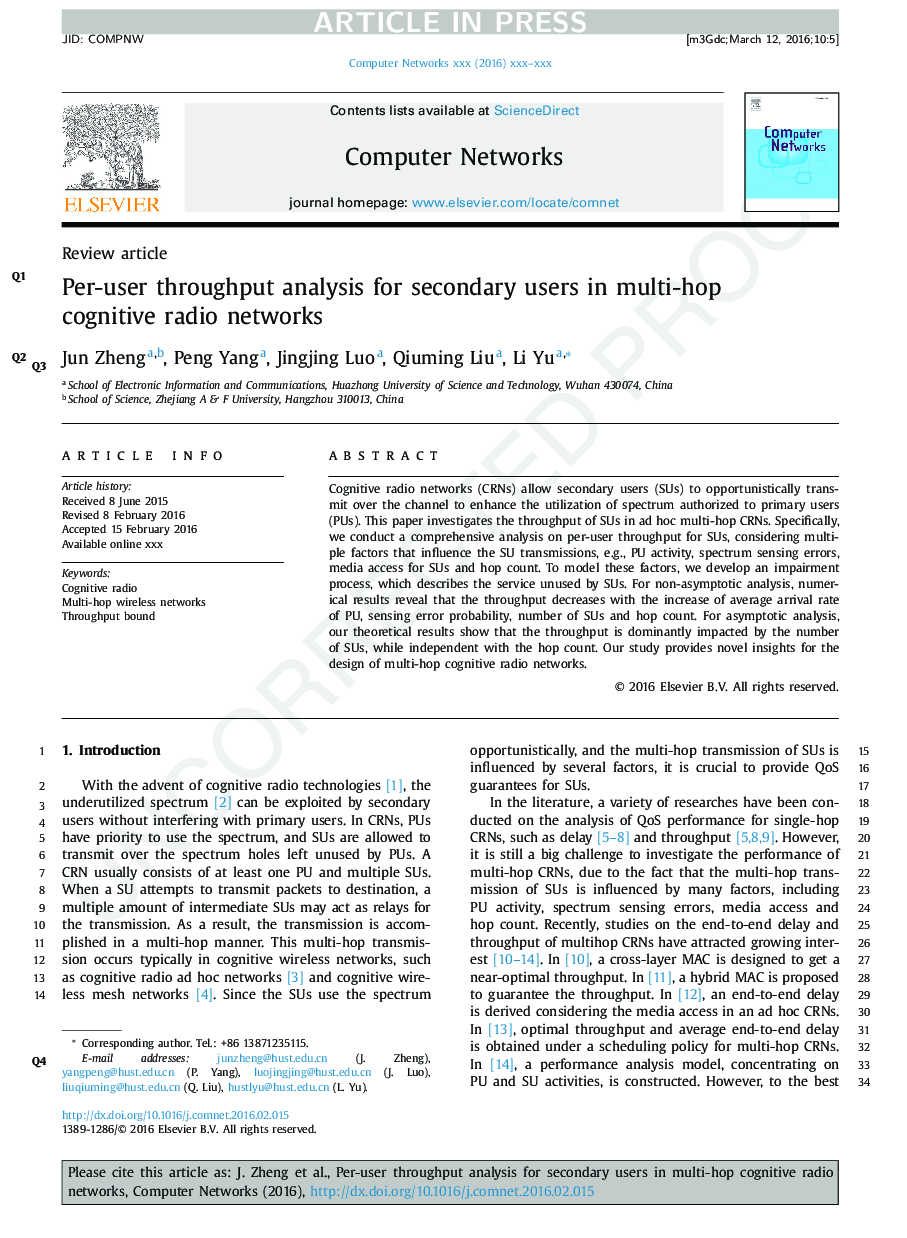| Article ID | Journal | Published Year | Pages | File Type |
|---|---|---|---|---|
| 6882927 | Computer Networks | 2016 | 12 Pages |
Abstract
Cognitive radio networks (CRNs) allow secondary users (SUs) to opportunistically transmit over the channel to enhance the utilization of spectrum authorized to primary users (PUs). This paper investigates the throughput of SUs in ad hoc multi-hop CRNs. Specifically, we conduct a comprehensive analysis on per-user throughput for SUs, considering multiple factors that influence the SU transmissions, e.g., PU activity, spectrum sensing errors, media access for SUs and hop count. To model these factors, we develop an impairment process, which describes the service unused by SUs. For non-asymptotic analysis, numerical results reveal that the throughput decreases with the increase of average arrival rate of PU, sensing error probability, number of SUs and hop count. For asymptotic analysis, our theoretical results show that the throughput is dominantly impacted by the number of SUs, while independent with the hop count. Our study provides novel insights for the design of multi-hop cognitive radio networks.
Related Topics
Physical Sciences and Engineering
Computer Science
Computer Networks and Communications
Authors
Jun Zheng, Peng Yang, Jingjing Luo, Qiuming Liu, Li Yu,
